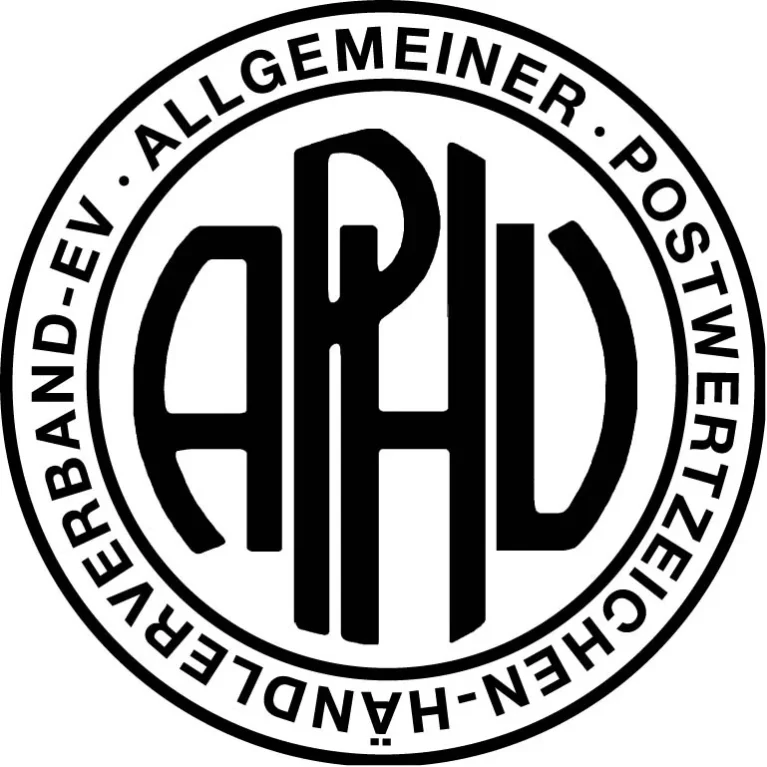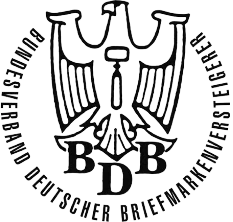Private postal services stamps

Do you want to sell your collection of private postal services stamps?
Get an unbiased valuation of your collectible and sell it at the best price. Stade Auktionen will guide you to the auction professionally and respectfully.
Private postal services – contemporary witnesses of a brief era in postal history
Before the introduction of the state postal monopoly in Germany, private companies were allowed to establish their own postal services. Usually, these were city postal companies that competed with the state postal service. These roughly 250 private providers not only operated their own delivery networks, but often also issued their own stamps.
The private postal services stamps were often specially tailored to the needs of cities and smaller towns. They differed considerably from the state stamps in terms of design, face value and postmarks. Many of these stamps were only printed in small editions, which makes them coveted collector’s items today. Letters or postcards that were actually sent within the private postal system of the time are particularly valuable.
One striking example is Berlin’s private postal service, which flourished at the end of the 19th century. There were also successful private postal companies in Hamburg, Leipzig and Dresden that issued their own stamps. Many of these stamps were designed with artistic motifs and reflect the identity of the respective cities.
The introduction of the imperial postal monopoly in 1900 put an end to private postal services. Today, their stamps are not only a piece of postal history, but also a fascinating collector’s item. Anyone interested in this subject should pay attention not only to the rarity and condition of the stamps but also to their authenticity, as there are numerous forgeries.
Factors determining the value of a private postal services stamp
Origin
Private postal services stamps were mainly issued in Germany, especially in large cities such as Berlin, Hamburg, Dresden and Leipzig.
In addition to Germany, there were also private postal services with their own stamps in other countries, including Great Britain, the USA, Austria and Switzerland. In some of these countries, private postal services existed longer than in Germany.
Age
Private postal services stamps date mainly from the period between 1880 and 1900, as many private postal services were active in Germany and other countries during this time.
The older a private postal services stamp is, the more unlikely it is that it has been preserved – especially in good quality. Stamps from the early days of private postal services, especially from the early 1880s, can therefore be particularly valuable.
Condition
Condition also plays a major role in private postal services philately. The value can vary greatly, depending on whether a stamp is mint or canceled or whether it is crease-free or creased.
Rarity
Many private postal companies only had small print runs, often in the range of a few thousand to ten thousand copies. Some stamps were only used for a very short time or only exist in a few known examples.
Material
Most private postal services stamps were printed on paper, using various qualities and printing techniques. Some stamps are printed on thin tissue paper, others on sturdy cardboard paper.
Characteristics
Whole items that were actually sent by private postal services are particularly sought after. Some city postal companies also used unusual or artistic postmarks, which can increase the value. Different print variants and local special editions can also be more valuable than other pieces.
Images



How to sell your stamps with Stade Auktionen

Contact us
Contact us by phone, e-mail or via the contact form for personal consultation.
Let us take care of your request
Whether you wish to entrust us with an extensive legacy, your entire collection or parts of it – we will appraise everything with utmost respect.
Your treasures in the best hands
We will make sure that your treasures get into the right hands as quickly as possible.
Our satisfied customers
Our network of partners and collectors from all over the world



Frequently asked questions
Find out everything you need to know about selling your stamps.
Stamps from the German colonies are particularly popular. They are extremely rare and their history makes them truly unique historical pieces. Stade Auktionen accepts stamps on letters and postcards as well as single stamps.
Individual items usually fetch a higher price. Nevertheless, we should consider together with you when it makes sense to sell individual items and when it makes sense to sell an entire collection. The valuation of a stamp collection depends on factors such as age, origin, rarity, condition and material.
The following conditions apply for consignments:
- The consignor may only consign postcards, stamps and other documents over which he has sole control.
- Consignments can be made at any time and will be included in the next auction.
- The starting prices are generally determined by the auction house. They are based on the current market situation.
- The auctioneer is entitled to accept underbids up to a maximum of 20% of the starting price.
- If the consignor withdraws the goods for reasons for which the consignor is responsible, an expense allowance of EUR 100 per hour shall be payable for the inspection and valuation of the items to be auctioned, but at least EUR 100 per order.
- The sales commission for the auctioneer is 22% of the hammer price. If the hammer price is up to 500 euros, the sales commission is 30% and the insurance costs are 1% of the hammer price. The statutory value added tax is levied on this. Postage costs for any returns shall be borne by the consignor. We charge a fee of 2.50 euros per lot for processing large lots and 1 euro for individual lots.
- The auctioneer cannot accept any liability for auctioned goods. He therefore takes out special auction insurance for the account of the customer, which insures the auctioned goods against all risks within the scope of this contract. The sum insured is 1% of the hammer price.
- If the consignor withdraws the goods for reasons for which he is responsible after the auctioneer has already advertised the goods in the catalog or on the Internet, the goods shall be deemed prepared for the auction and the auctioneer shall settle the order with a further expense allowance. This includes the lost commission of 20% of the starting price of the lot. In addition, the processing fee of EUR 25 per lot, up to a maximum of EUR 300, must be reimbursed. Fees for inspections that are necessary, at the auctioneer’s discretion, will be invoiced separately after consultation.
- Billing takes place up to two months after the auction.
- Advances are possible for good consignments.
- The place of jurisdiction for all parties involved is Lörrach.
We offer you various options for selling your stamps with us, depending on the type of stamp and your requirements. For advice on direct sales, commission sales or consignments for auction, please contact our experts on +49 7624 – 98 95 870 or at e-mail at einlieferung@stade-auktionen.de. In most cases, we can give you a clear assessment after you have sent us pictures. However, you also have the following options for sending the stamps:
- by visiting our premises
- by shipping at your own risk
- by letting us manage the collection of your valuables for transport, 100% insured (costs from €40.00 to max. €80.00 depending on the value).
The following costs apply depending on the value of the goods:
- Value of goods up to €10,000.00: €40
- Value of goods up to €15,000.00: €50
- Value of goods up to €20,000.00: €65
- Value of goods up to €25,000.00: €80
- Value of goods over €25,000.00: please give us a phone call
The surcharge for scheduled shipment within a time window of 4 hours (between 9:30 a.m. and 5:00 p.m.) is €6.00.
The surcharge for scheduled shipment within a time window of 2 hours (between 9:30 a.m. and 5:00 p.m.) is €10.00.
The bank transfer will be made as soon as possible after receipt of the goods.
The value and hence the selling price of old stamps depends on factors such as age, origin, rarity, condition and material. Rare stamps from German colonies can fetch high prices when sold.
To determine the value of stamps, it is important to consult a specialist such as Stade Auktionen. Specialist knowledge is required to correctly assess the value based on factors such as age, origin, rarity, condition and material.
Sell your stamps with Stade Auktionen
Do you want to sell a collection but don’t know how much your stamps are worth or how to sell them? Send us a message and we will take care of your request as soon as possible.

